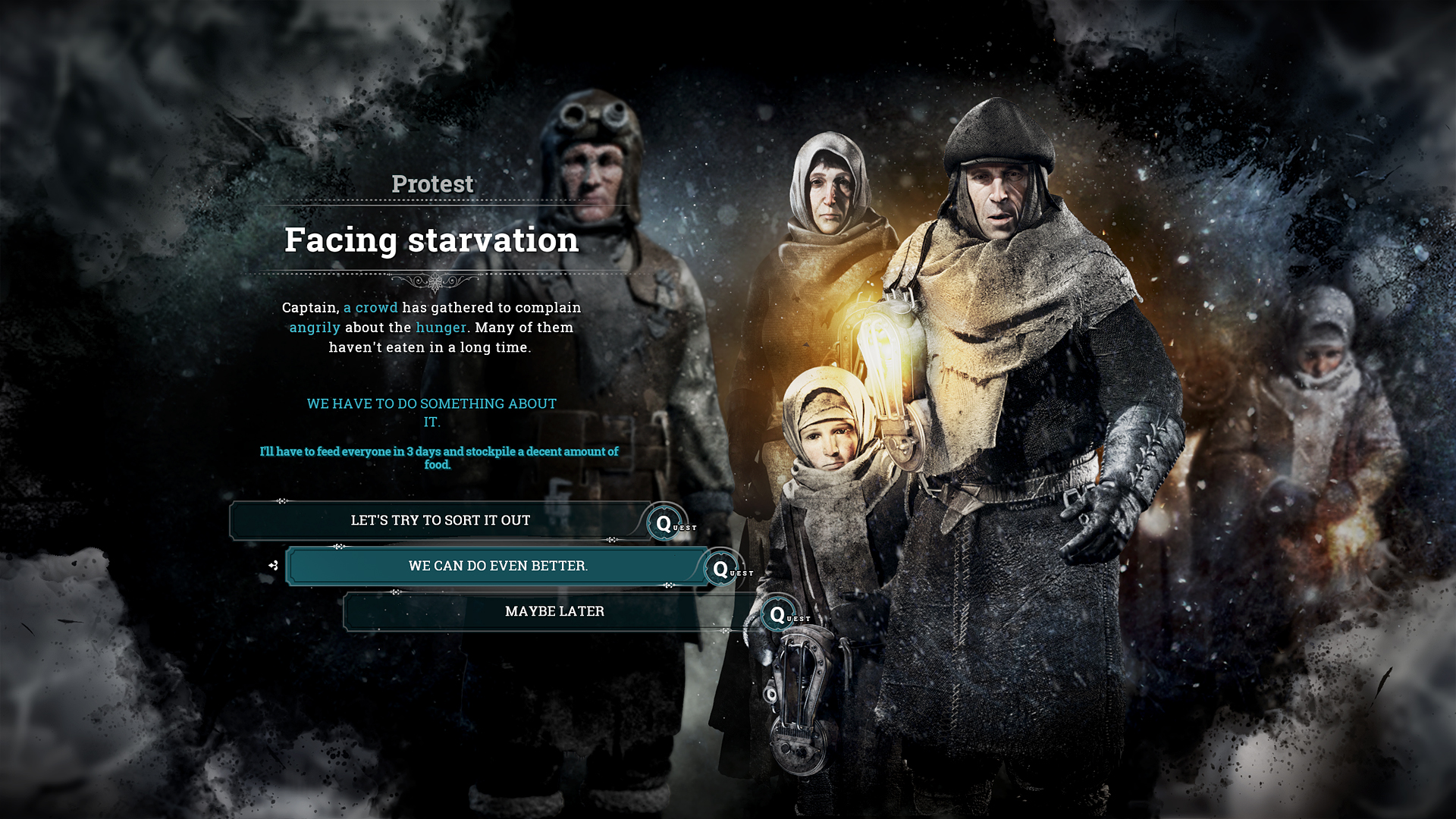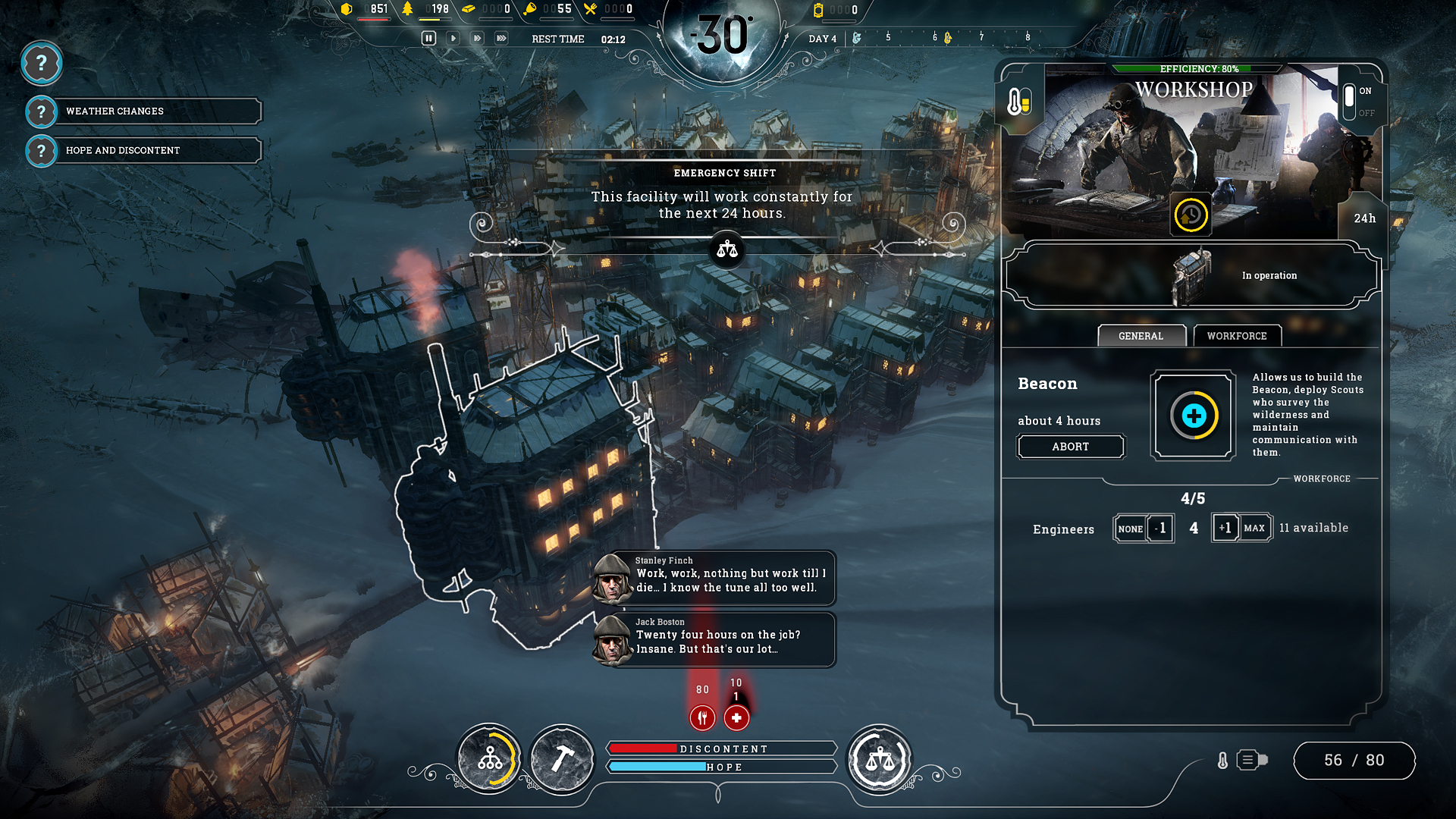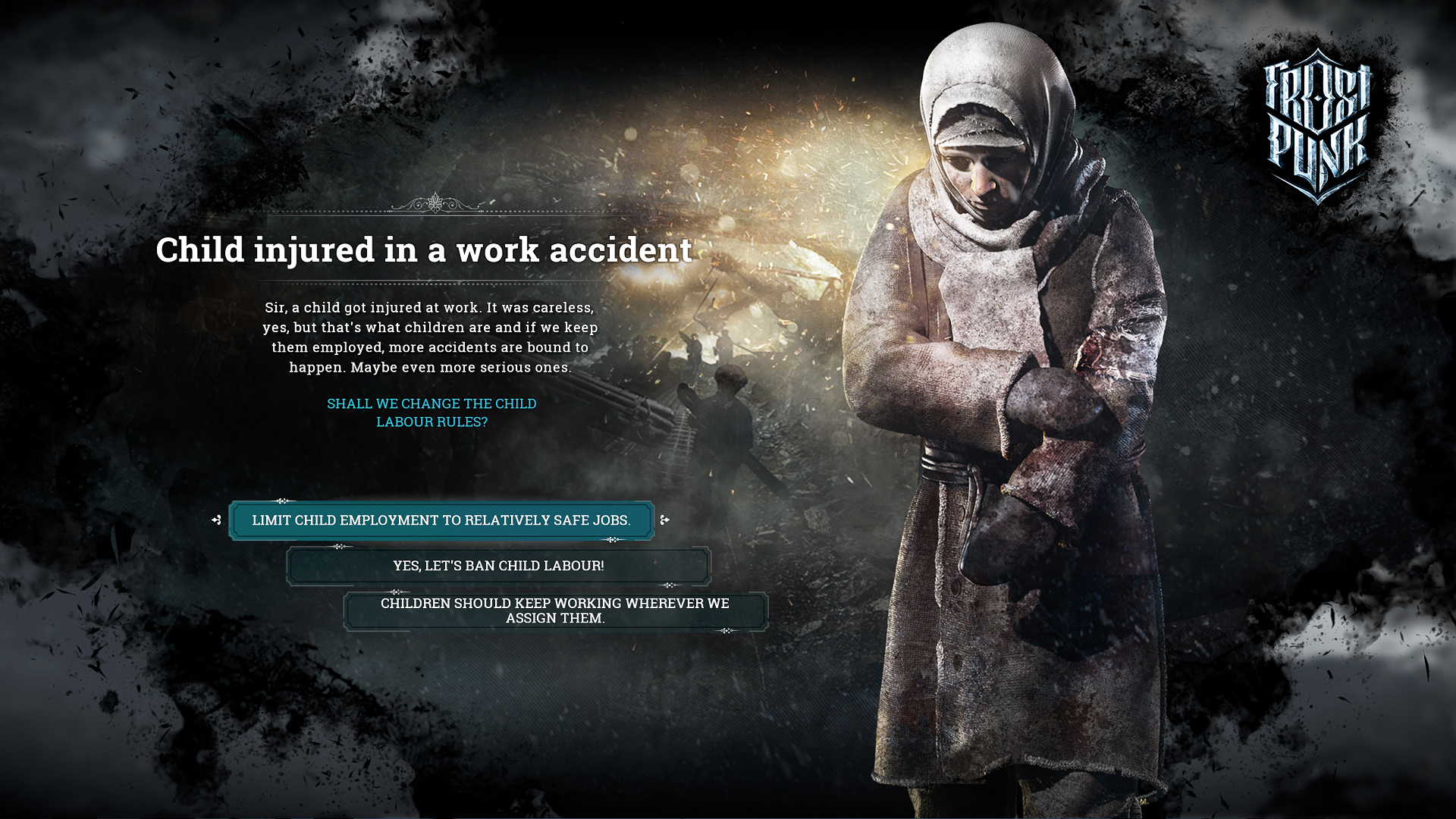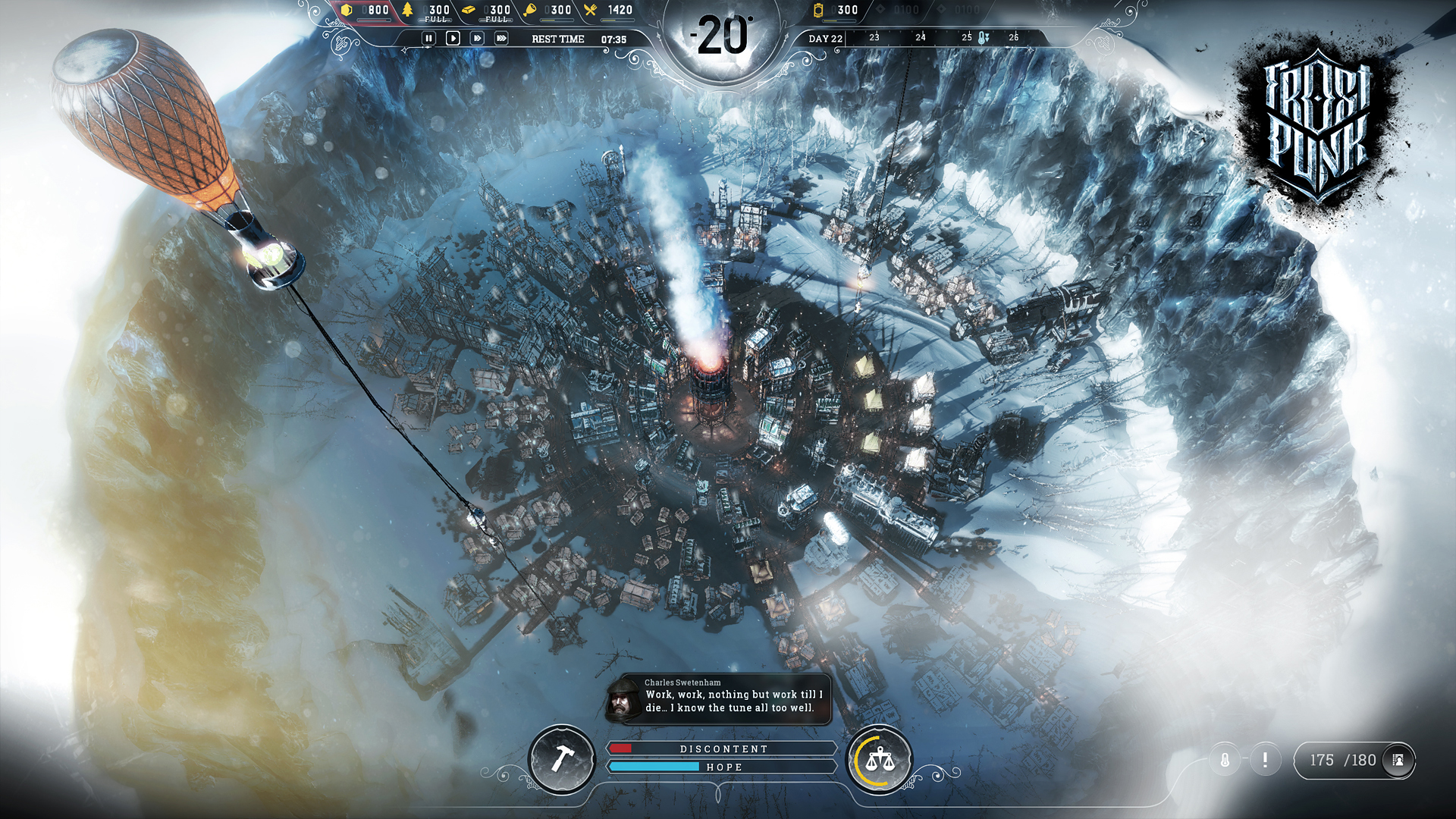You can't please everyone in survival city builder Frostpunk
Utilitarianism feels inevitable in this depressing city sim.

Frostpunk is a survival sim about managing a city in a wintry post-apocalypse by rationing resources like heat and food, passing hard-knock laws and, if you're Chris, mandating soup. But the more I talk with Pawel Czaplarski and Rufus Kubica of Polish developer 11 Bit Studios, the more I see that it's also a politically charged game about people. It's different from other city builders in that growth is far from your only goal, and it's different from other survival games in that you're responsible for an entire society, not just yourself.
"It's not like a never-ending city builder. It's more story-driven," Czaplarski says. "This game is about politics. It is about being a leader. You are responsible for your entire city-state. Whatever you shape will be your society. At the beginning you have a few simple tasks given to you to adapt to the situation. You need to get some coal, you need to start the generator. But ultimately you're supposed to lead your society to safety."
It's easy to make snap decisions when you're by yourself. In games like Don't Starve, you're free to do whatever you want with your resources. Things change when you're thinking about a group. Everyday decisions suddenly become difficult and complicated, and at the same time, some decisions become dangerously easy because you're not the one dealing with the consequences.

"I strongly believe that different rules apply to morality when it comes to groups," Czaplarski says. "Imagine being appointed leader of a country. Whatever you do, people will disagree, at least some of them. But you should think that, in the long-term, your decisions are right, you foresee the consequences.
"In Frostpunk, citizens ask for solutions to various situations. For example, when lacking manpower, people may ask you about child labor. Normally you wouldn't be sending children to work, but what happens if you're really on the edge? You may decide that sending children to work is actually the best solution."
As Chris discovered, endorsing child labor often leads to unrest and injuries. Luckily the build me and the devs are playing is fresh out of the oven and includes expanded and never-before-seen features. We opt for child shelters instead of child labor, and as a result, later on down the line we unlock the option to have children serve as medical apprentices, which is much safer work than mining coal or repairing massive generators. It's a long-term strategy, and like most long-term strategies in Frostpunk, it's a gamble.

"The laws you set are irreversible," Czaplarski says. "However, future laws can amend what you've decided in the past. Like applying radical treatment when people are frostbitten. They may lose their legs, but you still take care of them. They need to get food, they need to be treated, they need to be taken care of. You keep them in your society but they are useless. They are a part of your society that doesn't work. But this is your decision as a leader, and you believe it's humane. Later on, if you develop technology for prosthesis, you can create prosthetic limbs and make those people useful again. It's not a question of treating people as a resource, but making decisions that are good in the long-term for your entire society."
Keep up to date with the most important stories and the best deals, as picked by the PC Gamer team.
"What's important is that you don't know this at this point," Kubica says, referring to Frostpunk's many branching laws. "You may go for radical treatment but you don't know what comes further. It's the same with child labor. Usually people tend to send children to work because there's an immediate effect. But I prefer to go with child shelters because later on I can use them as medical apprentices. That's a long-term strategy."

It's especially difficult to resist the allure of immediate, short-term payoffs because you regularly receive requests from citizens. They need homes, they're freezing, they don't have enough food. One of the most interesting requests citizens make is the desire to explore the outside world. Frostpunk is set in an alternate 19th century where the world froze over just after steam engines were invented. Your main city is situated in a frozen crater, and people are curious about the outside world. Is it really as bad as it seems? Are their missing loved ones out there somewhere? Is yours really the last city on Earth? The only way to find out is to send exploration parties into the frozen wasteland, which carries huge risks.
At any given moment, you can bet that someone in your city is unhappy, and it falls to you to decide when to listen. You can ignore requests and complaints, but that builds discontent, one of Frostpunk's two most important resources, the other being hope. If your discontent bar maxes out, your citizens are liable to riot. Likewise, if you run out of hope, your citizens will likely abandon your city. Both result in you failing the scenario—there's currently one main scenario and two sub scenarios with unique challenges—so you have to at least meet your citizens halfway. For me, that's the most exciting thing about Frostpunk. You're the one in control, but there's no such thing as one-way communication. Your people also talk to you.

Austin freelanced for PC Gamer, Eurogamer, IGN, Sports Illustrated, and more while finishing his journalism degree, and has been a full-time writer at PC Gamer's sister publication GamesRadar+ since 2019. They've yet to realize that his position as a staff writer is just a cover-up for his career-spanning Destiny column, and he's kept the ruse going with a focus on news, the occasional feature, and as much Genshin Impact as he can get away with.

